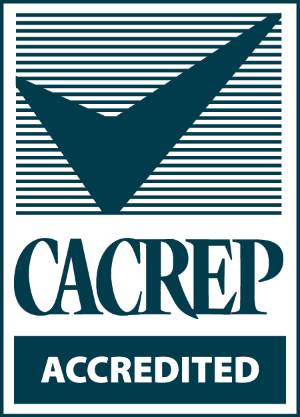Clinical Mental Health Counseling
Master of Arts | Specialist in Education
Program Overview
The Clinical Mental Health Counseling master's and specialist degree programs prepare students to provide mental health services to individuals and groups in public and private settings.
Graduates of this program often obtain LPC licensure with a Mental Health Service Provider endorsement, which allows them to work with cases of a more diagnostic and clinical nature. Licensure requires supervised clinical experience beyond the hours required for a degree.
Master's degree accredited by the Council for Accreditation of Counseling and Educational Related Programs (CACREP).
Annual Reports
- Master of Arts Mission Statement
The Master of Arts Degree in Clinical Mental Health
 Counseling is designed to prepare professionals to provide clinical counseling services
to a broad population of clients in a range of professional settings (e.g., clinics,
hospitals, school-based mental health programs, and private practice).
Counseling is designed to prepare professionals to provide clinical counseling services
to a broad population of clients in a range of professional settings (e.g., clinics,
hospitals, school-based mental health programs, and private practice).This master's program is specifically for individuals who possess at least a bachelor's degree and are interested in becoming clinical mental health counselors. Students are required to complete 60 hours of coursework specifically related to clinical mental health counseling.
- Program Objectives
Education of Counseling Students
1) To educate Clinical Mental Health Counseling students to meet all Tennessee standards for licensure as Licensed Professional Counselors/Mental Health Service Provider.
2) To provide training across the eight (8) common core areas as identified by CACREP. These are: Professional Counseling Orientation and Ethical Practice, Social and Cultural Diversity, Human Growth & Development, Career Development, Counseling and Helping Relationship, Group Counseling and Group Work, Assessment and Testing, Research and Program Evaluation.
3) To promote key stakeholders’ confidence in the Clinical Mental Health Counseling program’s ability to train students in the skills and dispositions of professional counselors.
Advancement of Program Excellence
1) Promote professional mental health counselor identity with students through involvement in professional counseling organizations.
2) That our faculty contribute to the field of Counseling, Counselor Education, and Mental Health at the national level through publications, presentations, membership in professional counseling organizations and service.
3) To maintain our CACREP accreditation for Clinical Mental Health Counseling.
Community Service
1) To provide service to counseling interns in a range of mental health professional settings (e.g., clinics, hospitals, school-based mental health programs, and private practice).
2) To provide service to the greater Upper Cumberland area through Continuing Education workshops, pro bono presentations, and consultation.
3) Provide service to the mental health profession.


